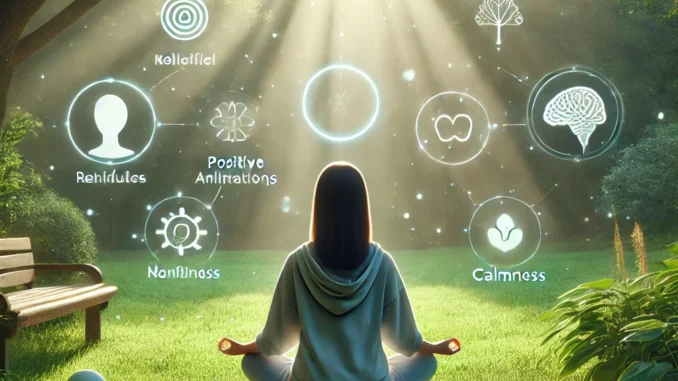
In today’s fast-paced world, maintaining good mental health is more important than ever. With rising levels of stress and anxiety affecting people from all walks of life, it’s crucial to understand the significance of mental health and learn practical ways to manage these challenges. This guide explores the importance of mental health, the impact of stress and anxiety, and offers actionable tips to reduce stress and boost overall well-being.
Understanding Mental Health
Mental health encompasses our emotional, psychological, and social well-being. It affects how we think, feel, and behave in everyday life. Good mental health not only helps us cope with the normal stresses of life but also enables us to work productively, form meaningful relationships, and make sound decisions. Neglecting mental health, however, can lead to chronic stress, anxiety, and even more severe conditions such as depression.
The Impact of Stress and Anxiety
Stress is a natural response to challenges, often motivating us to perform better. Yet, when stress becomes chronic or is accompanied by persistent anxiety, it can have detrimental effects on both the mind and body. Chronic stress may lead to fatigue, irritability, difficulty concentrating, and even physical ailments such as headaches and high blood pressure. Recognizing the signs of excessive stress and anxiety is the first step toward effective management.
Practical Tips to Reduce Stress and Anxiety
1. Establish a Consistent Routine
Creating a predictable daily routine can significantly reduce anxiety by offering a sense of control.
- Sleep: Aim for 7-9 hours of quality sleep each night.
- Meals: Maintain regular, balanced meals to keep your energy steady.
- Exercise: Incorporate at least 20-30 minutes of physical activity into your day—be it a brisk walk, yoga, or any activity you enjoy.
2. Practice Mindfulness and Meditation
Mindfulness keeps you grounded in the present, reducing the tendency to overthink.
- Daily Meditation: Dedicate 10-15 minutes daily to quiet reflection or guided meditation.
- Deep Breathing: Use deep breathing techniques when anxiety spikes to help calm your mind.
3. Stay Connected with Others
Strong social bonds offer a crucial support network during stressful times.
- Regular Communication: Make time for friends and family through calls or in-person meetups.
- Join Communities: Engage in support groups or clubs that share your interests.
- Volunteer: Helping others can provide a sense of purpose and alleviate stress.
4. Incorporate Physical Activity
Exercise is a proven stress reliever. Physical activity releases endorphins, which improve mood and overall well-being.
- Choose Enjoyable Activities: Whether it’s dancing, cycling, or a nature walk, pick something that makes you happy.
- Set Realistic Goals: Even moderate exercise several times a week can yield significant benefits.
5. Limit Exposure to Negative Influences
Minimize stress by controlling your environment.
- Digital Detox: Limit exposure to social media and news if they heighten anxiety.
- Set Boundaries: Learn to say no to commitments that overwhelm you.
- Positive Environment: Surround yourself with uplifting music, books, or activities that foster positivity.
6. Seek Professional Help When Needed
If your stress and anxiety feel unmanageable, consider professional guidance.
- Therapy and Counseling: Professionals can offer tailored strategies to help manage your mental health.
- Medication: In some cases, healthcare providers may recommend medication as part of your treatment plan.
Additional Strategies for Improving Mental Health
- Healthy Eating: A balanced diet supports brain function and mood regulation. Incorporate nutrient-dense foods and limit sugar and processed items.
- Hobbies and Interests: Engaging in activities you love can provide a creative outlet and a distraction from stress.
- Journaling: Writing down your thoughts can help you process emotions and reflect on your mental state.
Frequently Asked Questions (FAQ)
Q1: How can I tell if my stress and anxiety levels are too high?
A1: Signs include persistent worry, irritability, difficulty sleeping, frequent headaches, and trouble concentrating. If these symptoms interfere with your daily life, it may be time to consult a professional.
Q2: What are some quick techniques to reduce anxiety in the moment?
A2: Quick fixes include deep breathing exercises, grounding techniques (like focusing on the present moment), or taking a short walk. Even a brief break can help clear your mind.
Q3: Can exercise truly help manage stress and anxiety?
A3: Absolutely. Exercise releases endorphins, which are natural mood lifters. Regular physical activity has been shown to reduce symptoms of anxiety and improve overall mental well-being.
Q4: How often should I practice mindfulness or meditation?
A4: Consistency is key. Even 10-15 minutes a day can make a significant difference over time. The benefits of these practices build gradually, so try to incorporate them into your daily routine.
Final Thoughts
Prioritizing mental health is essential for living a balanced, fulfilling life. While stress and anxiety are common in our modern world, there are numerous strategies available to manage them effectively. By establishing routines, practicing mindfulness, staying connected, engaging in physical activity, and setting boundaries, you can significantly improve your mental well-being. Remember, seeking help is a sign of strength, not weakness. Start with one tip that resonates with you and gradually build on it—every small step counts.
Which tip are you most excited to try? Share your thoughts and experiences in the comments below!
Leave a Reply